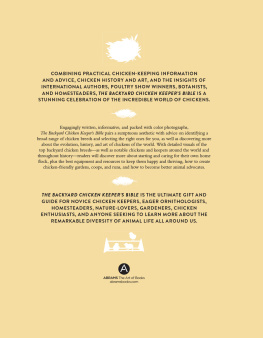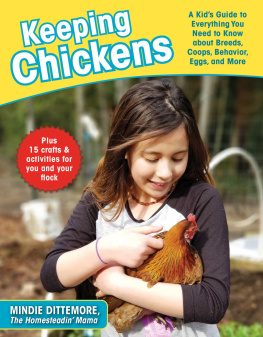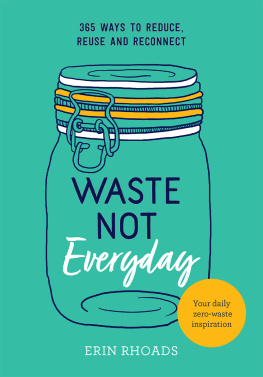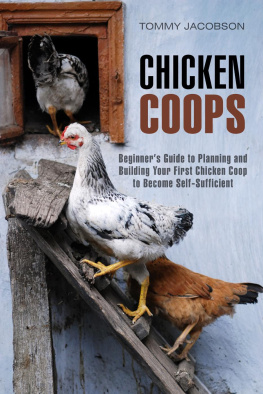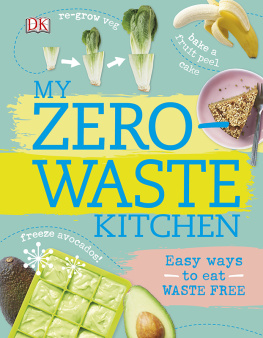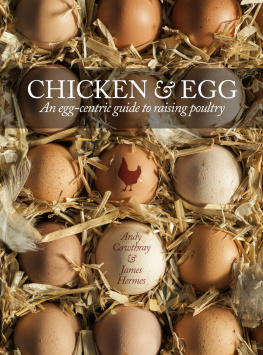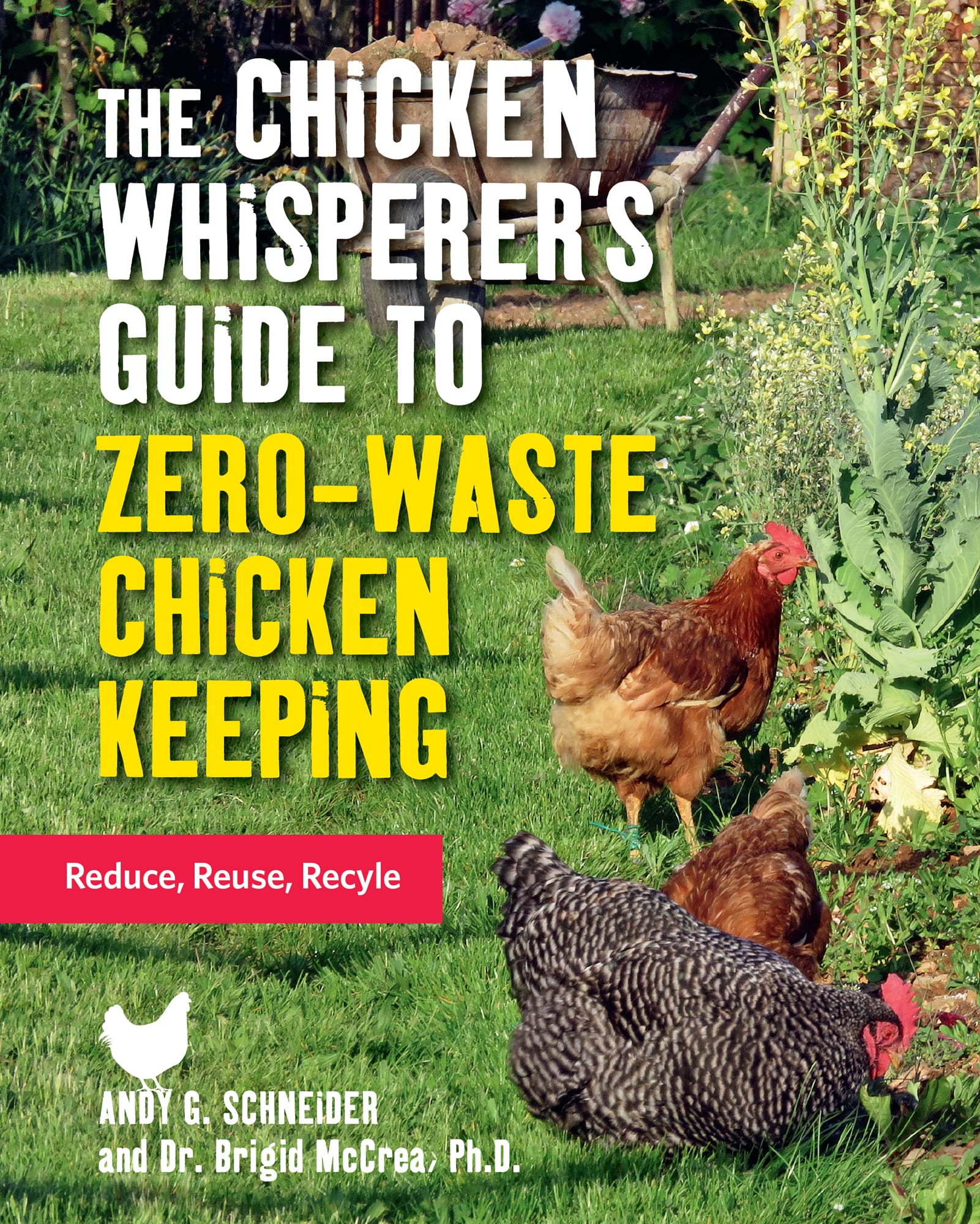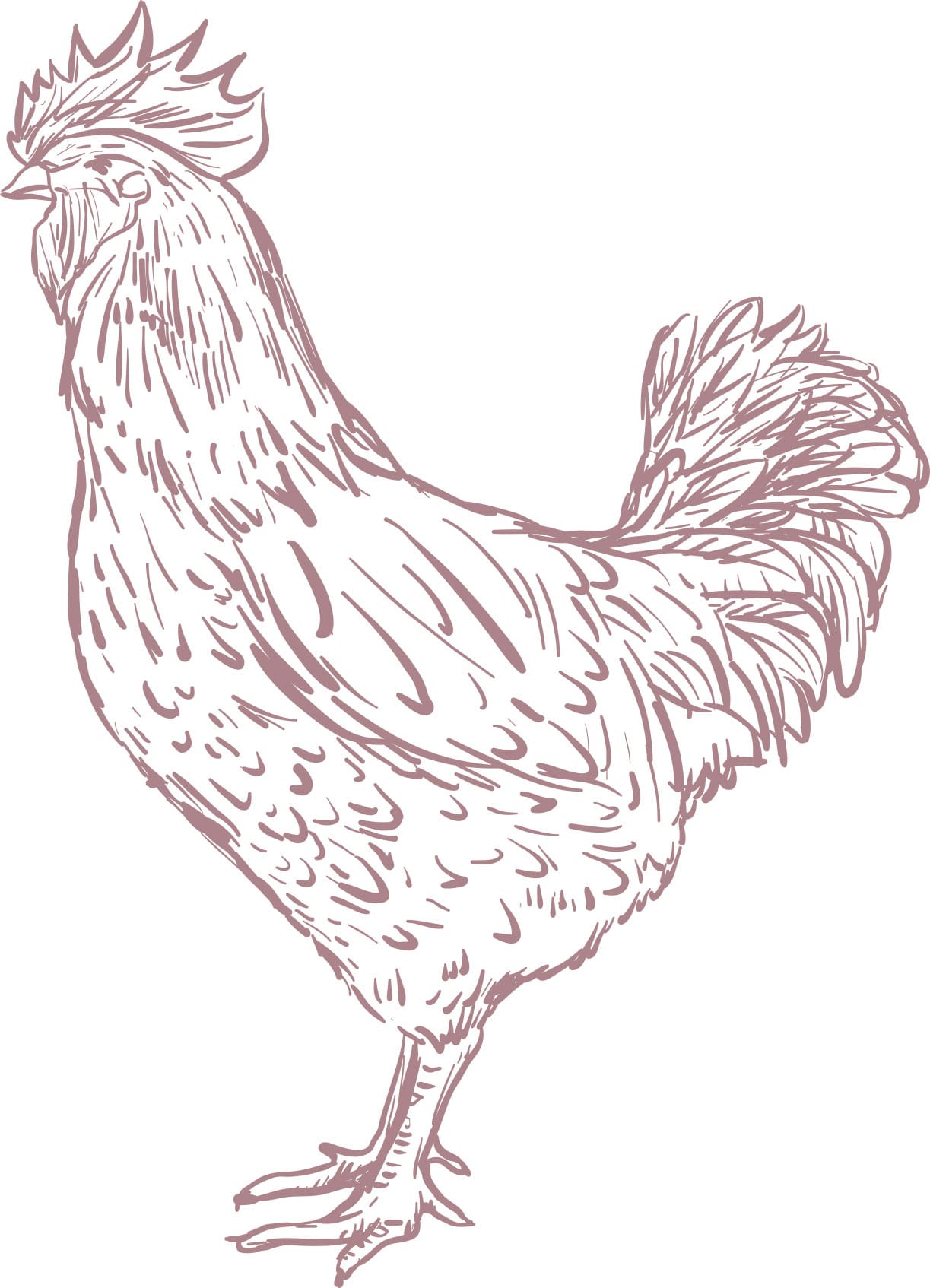Contents
Guide
THE CHICKEN WHISPERERS GUIDE TO
Zero-Waste Chicken Keeping
REDUCE, REUSE, RECYCLE
Andy Schneider and Brigid McCrea, Ph.D.

Introduction
What does zero-waste chicken keeping mean to you? As a backyard chicken keeper, youre certainly aware of how much waste chickens can produce. Their food is scattered on the ground to rot. Their waterers are soiled with dirt, causing it to be unfit for them to drink. They poop. The chicken feed bag adds to your trash output.
You may already be practicing some zero-waste chicken keeping without realizing that what youre doing is beneficial. For example, many backyard chicken keepers collect chicken poop and add it to a compost bin to develop rich soil, which will then be incorporated into a garden to grow vegetables to feed their family. This practice saves the chicken keeper money by not having to purchase fertilizer, and the richness of the soil will likely increase the total harvest weight.
This book will go beyond this step, offering many more ideas that will help you implement realistic and beneficial waste-free practices. Youll be able to reduce many different types of waste from biomass and trash that ultimately end up in a landfill, and you can make chicken keeping easier, more efficient, and economical. Additionally, you will learn not to spend money on items where repurposed materials are perfectly adequate.
Sustainability has become a catchphrase over the last decade. Certain individuals want to limit the resources they use from the outside world and still provide their families with nutritious food from their backyard. You will find that the suggestions in this book will help you to use your resources in the most efficient and effective ways.
Furthermore, if you are trying to legalize chicken keeping in your area, presenting municipalities with a zero-waste plan may help overcome some concerns about backyard poultry. You may be able to persuade neighbors and leaders that it is a myth that chicken owners negatively affect the environment around them.
Some would probably claim that there is no such thing as zero-waste chicken keeping or that zero waste is totally unattainable. However, zero waste is a goal that we can all work toward by becoming aware of strategies we can implement and by applying these measures for the betterment of our homes, flocks, and farms. Great strides have been made in the backyard chicken-keeping realm to reduce negative effects on the environment. In fact, when you intentionally begin to practice zero- or low-waste chicken keeping, youll see that raising chickens can benefit the environment in many ways.
In the following chapters, youll learn many different wayssome more advanced, others easyto begin implementing zero-waste chicken practices in and around your property.
The first step in this journey is research. Thats why youre here. The more research you do on proper care and chicken-raising techniques, the more prepared you will be, the less time and money you will spend on unnecessary projects and items, and the more efficient your farm will run.

A YEAR WITH Hens AND No Waste
In this book, we have done our best to define for you the inputs and outputs of chicken production from a zero-waste perspective. We have systematically broken down the steps of chicken production to carefully analyze where you can route your typical efforts toward a more environmentally friendly approach. We must all share this Earth. Some of us choose to share our plot of land with chickens. So rather than heading out to a feed store and then plunking down a box of chicks into a new coop, look at the footprint you are leaving on this planet.
Overloading the soil to the point of water contamination or filling the local landfill with waste from your chickens can all be avoided. We would like to help you consider the steps and measures you can take to be more efficient in your chicken-keeping habits. Some of these measures may mean more work, other times it may mean that you need to be more creative. When it is important for you to know about sources or ideas that may lead to waste, then we will give you a little nudge in the form of a Waste Alert so that you can be prepared to make a decision that will require some additional thought.
This chapter offers an overview of a lot of the issues youll need to tackle as you begin to raise your chickens. We will touch on not just the stages of chicken raising but also, bedding, water, diet, and biosecurity.

Start AT THE Beginning
When you start planning chicken keeping with a zero-waste approach in mind, you first need to think about the true beginning. That means you have no chickens on hand and you are going to get started by bringing birds onto your property. It may not necessarily be the first time you have ever raised chickens, or perhaps not even the first time that chickens have ever been on your property, but you need to start at the beginning.
How will you start your flock? Some people have access to an incubator and can find someone to supply fertilized eggs for a hatching project. The vast majority of people would rather leave the slings and arrows of hatching to someone else. Thankfully, that means that to start this venture, all you need to do is phone in an order to a chick hatchery. There are several to choose from across the country so that makes this part of the process much easier.
A reputable hatchery is one that is a member of the NPIP (National Poultry Improvement Plan) program. This is a program in which hatcheries test their equipment and the related breeder flocks for diseases that can kill chicks. Historically speaking, there used to be problems with several different diseases being passed from hens to the chicks; when chicks were delivered by mail, they would be sick. Sick chicks would die soon after delivery, an all-around bad situation, or they would pass along the diseases to chickens already on the farm, causing them to be sick or even die. NPIP tests for those diseases and today has even added some of the newer ones such as avian influenza. Hatcheries participate on a volunteer basis. Closely examining the programs in which hatcheries participate will help you decide if they are going to provide healthy chicks for your venture. The more NPIP programs that a hatchery participates in, the more rigorous their testing of breeders, which is to your benefit


